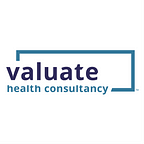Diverse COVID-19 vaccines advance toward market
A glance at the strategies and pricing behind vaccine contenders
The recent release of preliminary Phase 1 results from Moderna/National Institute for Allergy and Infectious Diseases spurred hope for the development of a successful COVID-19 vaccine. Although the data (or lack there of) proved controversial, the encouraging tone of the results reinvigorated the importance of finding solutions that yield durable immune responses.
Only 1 in 10 experimental vaccines make it to regulatory approval. Studying diverse formulations of vaccines increases the likelihood of finding a successful concoction. Currently, there are 25 unique COVID-19 vaccines in development. Surveillance and post-marketing safety require extra vigilance due to the speed of these vaccines. Manufacturers have implemented unique strategies to ensure equitable, widespread access.
Strategies to create a successful COVID-19 vaccine
1
Unparalleled manufacturer collaboration is critical to scale the COVID-19 vaccine, and existing relationships are prevailing
•GSK/SANOFI: Sanofi is using the adjuvant expertise of GSK to enhance its proprietary protein-building infrastructure
•PFIZER/BIONTECH: Pfizer is working with existing German partner to ramp up vaccine efforts
•Both partners immediately pooled data and resources to combine forces to develop vaccines in record speed with a focus on scalability
•Partnerships have the power to increase vaccine capacity from 1 million in 2020 to 100 million by 2021
2
Global mindset begets vaccine scalability
Access to COVID tracing tools like the WHO Accelerator Program are important for vaccination deployment. These systems require a global mindset, and countries are coming together earlier than ever to address concerns about equity. (Note: The US, Russia, China, and India have not joined the WHO effort)
3
Lean on BARTA leadership and learnings
•BARTA slated to be the major voice across the world as COVID-19 vaccines come to market
•Created pandemic committee in 2018 that includes global specialists to increase response speed. Teams will lean on experience from 2009 H1N1 pandemic
BARTA=Biomedical Advanced Research and Development Authority.
Paying for vaccines in the US
The Affordable Care Act requires all vaccines recommended by the Advisory Committee on Immunization Practices (ACIP) be covered without cost sharing by non-grandfathered commercial health insurance plans and Medicaid expansion programs. Given the economic destruction caused by COVID-19, expect the list of eligible patients for free vaccines to expand further. The H1N1 vaccine may be a useful benchmark for purchasing strategy and pricing:
2009 H1N1 vaccine
Primary purchaser:
Federal government
Cost:
$8.60 per dose
COVID-19 vaccine
Primary purchaser:
Unknown*
Cost (estimation):
$50 to $100 per person
*If the COVID-19 outbreak subsides before a vaccine is approved, the federal government is unlikely to be the primary purchasers; however ACIP cost-sharing laws will still stand.
Vaccine dissemination prioritization strategies will likely be developed by governments and may look something like this:
•Phase 1/Healthcare providers and essential workers
•Phase 2/High-risk individuals
•Phase 3/General public
Given how much we still don’t know about the virus, an imminent vaccine is unlikely; however the response speed, collaboration, and open data sharing seen from manufacturers during this time is a promising sign that developing scalable products for infectious diseases is possible. The best practices accumulated during this experiment may prove valuable to products in other disease states once the crisis subsides.
How can we help find your way in to optimizing vaccine value in the wake of COVID-19?
